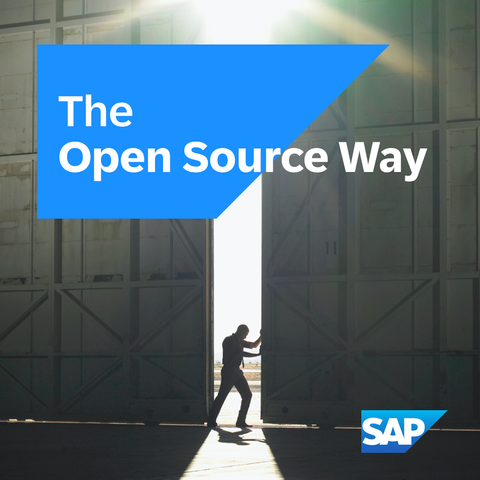Good morning Fedi! Do any of yall use a operating system that's not Linux, Windows, BSD or Mac on a regular basis? If so, which one?
#qemu
My first #podcast appearance has finally gone live. SAP's "The Open Source Way" is a regular podcast looking at various #floss projects. This week Karsten talks to Helge and myself about #qemu, its capabilities, development model and project governance.
Find it wherever you listen to podcasts or just follow the link: https://podcast.opensap.info/open-source-way/2025/07/17/qemu/

docs: define policy forbidding use of AI code generators · qemu/qemu@3d40db0
https://github.com/qemu/qemu/commit/3d40db0efc22520fa6c399cf73960dced423b048
New to FreeBSD? Getting started is easier than you think.
As more people explore FreeBSD beyond servers, we're showing just how simple it is to dive in — even on a MacBook. Whether you're installing from scratch or trying out a virtual machine, FreeBSD offers flexible options to fit your setup.
For a full walkthrough, check out the blog post linked below: https://freebsdfoundation.org/blog/three-ways-to-try-freebsd-in-under-five-minutes/
Watch the full video here: https://youtu.be/CWuZLJkUBfw?si=cY6tvVl02nTn4SG8
@mrmasterkeyboard @landley I'm merely expanding beyond #mkroot because I want to not only target a #QEMU-#VM but real-world hardware and have an actually useable #CLI / #TUI #desktop experience with quality-of-life features and tools...
@deadbeefdotmonster Last time [not recently, maybe a year'ish ago] that i tried enabling 3D Accel [is that what you mean by "hardware accel"?] it seemed to work well, but it broke the ability for me to Suspend [aka Save] my VMs each time, ie, i had to fully SD them, then cold SU them next time. That was a bigger PITA for me than the hitherto lack of accel, so i disabled it again ever since. Ofc #QEMU / #KVM / #libvirt / #VirtManager have had many updates since then. Maybe it's better now?
A whole afternoon playing around... ok, no, that's not the word... It's been a whole afternoon banging my head against the wall that libvirt and its cousin virt-manager are.
I ended up going back to the ol' trusty shell script I use to fire up my FreeBSD and OpenBSD VMs. This is a desktop, not a server, so the VMs are on just for what I need to run on them (mostly checking portability of code I write) and then, they're shut down. No need for a socket listening in the background or a service to do who knows what.
The thing that really pissed me off was the permissions situation libvirt/libvirt-qemu got me into. I mean... wow, it silently set an ACL entry on my $HOME on its own to unilaterally give itself permissions inside my $HOME. Wow.
May’s #Tumbleweed update rolled out #QEMU 10.0 for improved virtualization and #OpenSSL 3.5.0 with post-#quantum #crypto
Security got serious with #CVE fixes
#openSUSE https://news.opensuse.org/2025/06/02/tw-monthly-update-may/
Resolve Libvirt Error Unable to Find EFI Firmware
A step by step guide on how to fix the Libvirt Error Unable to Find EFI Firmware by updating the paths in the virtual machine’s configuration.
https://www.adamsdesk.com/posts/resolve-libvirt-error-unable-find-efi-firmware/
yesterday in #fedora qa (sorry, forgot):
* previous evening I finally pinned down the mystery network test bug affecting staging #openqa to #qemu . so spent most of yesterday reporting it and starting to bisect it: https://bugzilla.redhat.com/show_bug.cgi?id=2369047 . looks like it's likely to come down to a cluster of changes to virtio-net in qemu 9.2.0
@theDuesentrieb I asked for the highest-spec computer the company would buy me (which turned out to be an Apple MacBook M2). I then promptly installed a QEMU-based emulator and installed Debian Linux into the emulator. The emulated disk is fully encrypted. I allow the VM full use of all CPU cores and 100% of all memory and disk space.
If you do get a Apple computer, I highly recommend you buy UTM from the app store, it is by far the most cost-effective option, and works extremely well with Debian Aarch64. Once you install the qemu-guest-agent package onto Linux, the Linux screen resolution will automatically match the #MacBook, copy-paste works seamlessly between #Linux and #MacOS. Desktop environments like #Cinnamon, #Xfce, #Gnome, and #KDEPlasma all allow you to select #HiDPI scaling which allows Linux to take full advantage of the #Apple “retina” display (it looks beautiful). The one and only drawback is that #QEMU cannot use Apple’s hardware multimedia codecs, so it falls back to software codecs, and the CPU just can’t keep up with things like video conferencing, or often even ordinary 720p video playback. I use Mac OS for only multimedia applications and video conferencing. For everything else, I continue to use Linux.
I recommend the bridge networking adapter so you can have two-way network communications between Linux and MacOS, this allows for file transfer between Mac and Linux via rsync. The trade-off is that every time your Apple computer switches computers networks (e.g. between home and office), you must reset the networking services in Linux. If you choose the NAT network option Linux will always have network access directly via the MacOS interface, but you will not be able to easily transfer files between Mac and Linux.
The keyboard is the hardest thing to get used to, mostly that “super” and “alt” are swapped. Be sure to transpose those keys in the #UTM configuration. It is easy to configure the Apple keyboard to (for example) make caps-lock another control key.
I've been reminded the #cfp for #kvmforum is out: https://kvm-forum.qemu.org/2025/ entries close on the 0th of June. I'm thinking possibly implementing a new #QEMU #TCG CPU as an angle on the single binary work but I'm wondering what the MVP might look like. Do I have the time? #kvmforum2025
I've just updated my Tinycore distro to the latest version and of course am playing with it again. So much fun!
Now spawning XigmaNAS in QEMU
Downloaded XigmaNAS to also play with it in QEMU
'"[…] Live update is a technique wherein a #QEMU plus guest instance can be updated to run the latest version of QEMU, with minimal guest pause time, and no loss of external connections.[…]
When I last wrote in this space about our QEMU Live Update project, it was but a prototype, […] That has since changed with the release of cpr-reboot mode in QEMU 8.2, and the […] cpr-transfer mode in QEMU 10.0."'
https://blogs.oracle.com/linux/post/what-ever-happened-to-qemu-live-update
As we head into May Paolo has written up the current state of #rust in the #qemu code base: https://lists.gnu.org/archive/html/qemu-devel/2025-05/msg00455.html
It looks like things are coming together although we are not quite at the point we can throw the switch to make it mandatory. We haven't had much feedback from the #distros yet on how easy a rust-ified QEMU will be to package.
#Linux Weekly Roundup for April 27th, 2025: #OpenMandriva Lx 6.0, #QEMU 10.0, #COSMIC alpha 7, #CachyOS adds OCCT stress testing tool, #GStreamer 1.26.1, #Mixxx 2.5.1, #Fedora Linux 43 could drop #GNOME X11 session from repos, and more https://9to5linux.com/9to5linux-weekly-roundup-april-27th-2025










